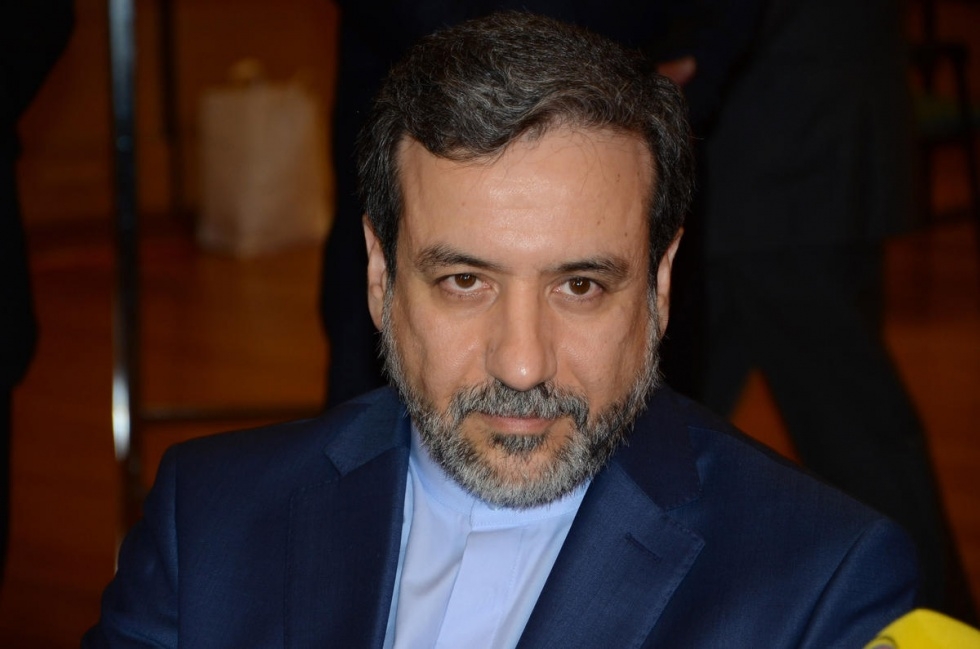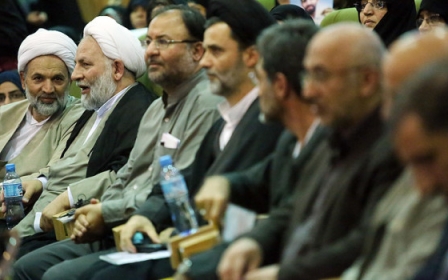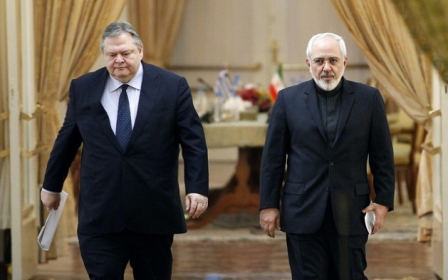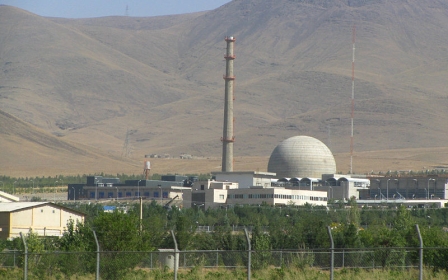Vienna talks point to difficult road ahead

As talks in Vienna on Iran’s nuclear programme concluded at the weekend without apparently any progress, it is time to take stock of the daunting difficulties facing Iranian negotiators. Besides contending with the maximalist position of seasoned Western diplomats, Iranian negotiators’ manoeuvrability is constrained by clear guidelines set by their government, the unfailing vigilance of a mighty and clear-sighted establishment and aggressive lobbying by anti-Western hardliners.
In addition, Iranian negotiators have to reckon with the expectations and sensitivities of Iranian public opinion, which owing to a decade of state propaganda has come to regard the nuclear programme as a showcase of the achievements pursuant to the country’s independence.
In view of the apparent determination by both sides to clinch a deal, there is still much cause for optimism even if there is no breakthrough by 20 July, the self-imposed deadline before the interim deal (reached last November) expires. There is recognition by both sides that the time frame can be extended beyond 20 July if there is sufficient ground for engagement.
Success in the next rounds will largely depend on the extent to which both sides can step back from their maximalist positions to allow for common ground to take shape. In order to create the necessary conditions for the realisation of this scenario Western diplomats and negotiators would do well to increase their understanding of the complex web of dynamics driving the Iranian decision making process.
Government of 'wisdom and hope'
Iranian President Hassan Rouhani successfully competed in last June’s presidential elections on the campaign slogan of “wisdom and hope” (Tadbir va Omid). Consequently Rouhani’s government has been styled as a wise and hopeful administration by both his supporters and crucially the reformists who were largely sidelined following the disputed 2009 presidential elections.
Despite enjoying the support of the reform movement the Rouhani administration is not in fact reformist. A moderate conservative by instinct and training Rouhani has been at the heart of the establishment for over 30 years, as evidenced by a string of high-profile national security posts. As secretary of the Supreme National Security Council, Rouhani was Iran’s chief negotiator with the West on the nuclear file until 2005.
In view of his impeccable revolutionary credentials Rouhani is fully trusted by the establishment, in particular the supreme leader Ayatollah Khamenei and the high command of the Islamic Revolutionary Guards Corps (IRGC). By contrast, the genuinely reformist former president Mohammad Khatami (1997-2005) was never accepted by the establishment.
The Rouhani administration consciously and cleverly compares itself to the radical former Ahmadinejad administration, widely viewed as volatile, eccentric and prone to ideological posturing. It is in this context that both in the domestic and foreign policy spheres Rouhani and his team frame their ideas and vision in the language of stability and moderation. The central theme is to place the country’s state of affairs on a stable footing with a view to securing a more promising future.
Resolving the nuclear dispute - and its attendant economic-related problems caused by sanctions - is the Rouhani administration’s biggest challenge, and one which the president and his team have embraced enthusiastically. The choice of Mohammad Javad Zarif as foreign minister was a dramatic statement of intent by Rouhani in view of the former’s diplomatic prowess and popularity in Western diplomatic and intelligence circles. Loathed by hardliners, Zarif is nevertheless grudgingly respected by the establishment for his outstanding diplomatic skills and unparalleled influence on Western diplomacy. There is a consensus in Iran that in terms of reaching a settlement with the West, Zarif is the best man for the job.
Despite their enthusiasm to resolve the nuclear dispute, the Rouhani administration has clear red lines, some set by the establishment but most by the government’s own understanding of the national interest. The biggest red lines for the government are Western demands to dismantle entire nuclear-related facilities and to curtail the country’s ballistic missile programme. The former is viewed as a brazen assault on Iranian achievements on the nuclear field and the latter is regarded as an even more outlandish assault on the country’s deterrent capability. Iran has one of the most advanced ballistic missile programmes in the world, which is viewed by the country’s leaders in addition to military commanders as compensation for the comparative weakness of conventional Iranian armed forces.
It is in this spirit that Zarif remains cautiously optimistic after Vienna, as evidenced by his tweet to the effect that “Agreement is possible. But illusions need to go. Opportunity shouldn't be missed again like in 2005.” This can be interpreted as a direct appeal to Western negotiators to moderate maximalist demands and to begin to acknowledge Iranian red lines.
Confident establishment
The biggest difference between the government and Supreme Leader Ayatollah Khamenei is not over red lines, but on the potential impact of Western pressure on Iran. Hitherto, this pressure has taken the form of wide ranging and tough sanctions that target all key sectors of the Iranian economy, chiefly the oil and gas sector. For the government lifting sanctions is a key priority as there is a widespread recognition in governmental and professional circles that sanctions are the primary cause of severe economic difficulties, in particular runaway inflation.
By contrast Ayatollah Khamenei does not draw a connection between sanctions and economic hardship. The supreme leader believes that the cause of Iran’s economic malaise has deeper origins and that sanctions and international isolation are merely one aspect of this spectrum. The leader has called for a “resistance economy” (Eghtesad-e-Moghevemati) to overcome hardship and to re-balance economic resources and opportunities in favour of the less advantaged.
This difference in outlook over sanctions is important in so far as it indicates that the leader and his allies in the IRGC high command do not feel the same level of urgency in terms of the time line of the talks. Moreover, both the leader and the IRGC feel confident that in the event of a breakdown in negotiations Iran can deal with the repercussions.
The government also has to take stock of the expectations and sensitivities of public opinion. Although it is fair to say that a broad majority of the population seeks immediate sanctions relief and the pursuant economic advantages, there appears to be no sharp disagreement between the populace and the system on the nuclear issue. By most credible estimates and opinion polling the people, like their leaders, appear to value nuclear-related technology and its attendant economic and strategic advantages.
Furthermore, despite the economic volatility, the Iranian economy has proven to be remarkably resilient in the face of severe sanctions. Whilst undoubtedly the strain of sanctions has played a role in bringing Iran to the negotiating table, nonetheless Western leaders cannot rely on the stick of sanctions alone to coerce compliance.
- Mahan Abedin is an analyst of Iranian politics. He is the director of the research group Dysart Consulting.
The views expressed in this article belong to the author and do not necessarily reflect the editorial policy of Middle East Eye.
Photo credit: Iran’s deputy foreign minister Abbas Araqchi speaks to the media following nuclear talks between Iran and the P5+1 (AFP)
Middle East Eye propose une couverture et une analyse indépendantes et incomparables du Moyen-Orient, de l’Afrique du Nord et d’autres régions du monde. Pour en savoir plus sur la reprise de ce contenu et les frais qui s’appliquent, veuillez remplir ce formulaire [en anglais]. Pour en savoir plus sur MEE, cliquez ici [en anglais].





